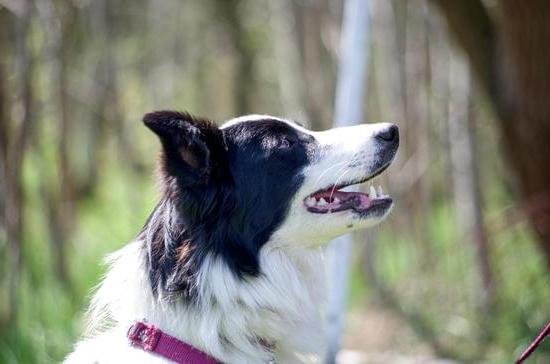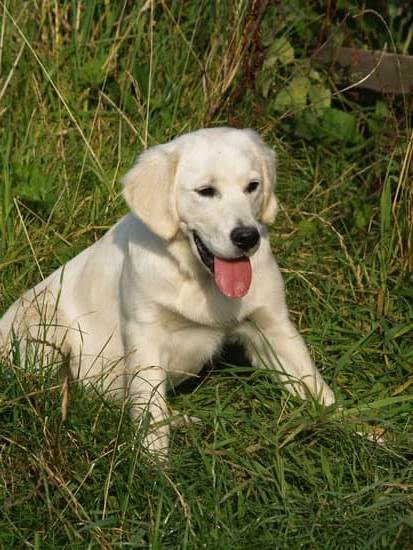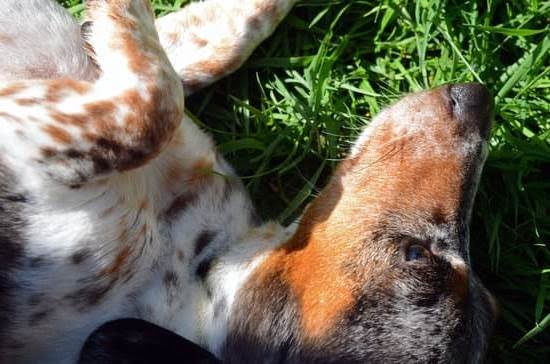Are you struggling with how to potty train your older dog? Potty training an older dog comes with its own set of challenges, but with the right approach and consistency, it is definitely achievable. From assessing your dog’s readiness to addressing medical issues that may affect the process, there are several factors to consider when embarking on this journey.
As our loyal canine companions age, they may experience changes in their behavior and physical abilities that can make potty training a bit more challenging than training a young puppy. Understanding these challenges is the first step towards successfully potty training your older dog.
In this article, we will explore the different aspects of potty training an older dog, including assessing their readiness, establishing a consistent routine, using positive reinforcement techniques, and addressing any medical issues that may impact their ability to learn. We will also discuss how to manage accidents and setbacks, while providing mental and physical stimulation for your older dog during the potty training process.
So if you’re ready to tackle this important task with your furry friend, read on for valuable tips and insights.
Assessing Your Older Dog’s Potty Training Readiness
Understanding the Signs
Before beginning the potty training process with your older dog, it’s important to assess their readiness. Look for signs that indicate your dog is ready to be potty trained, such as being able to hold their bladder for longer periods of time, showing discomfort when they need to go outside, and understanding basic commands. These signs can indicate that your older dog is ready to begin the potty training process.
Evaluating Physical Health
It’s crucial to consider your older dog’s physical health when assessing their potty training readiness. Older dogs may have mobility issues or medical conditions that could affect their ability to be successfully potty trained. Consult with your veterinarian to ensure that your dog is in good health and able to participate in the training process without any underlying medical issues hindering their progress.
Prior Experience
Take into account any prior potty training experience that your older dog may have had. If they were previously house-trained but are now experiencing accidents, it could be a sign of an underlying medical issue rather than a lack of potty training skills. Understanding your dog’s history and any changes in behavior can help you determine if they are ready for potty training or if there are other factors at play that need to be addressed first.
Establishing a Consistent Potty Training Routine
One of the key factors in successfully potty training an older dog is to establish a consistent routine. Dogs thrive on routine and structure, and having a set schedule for potty breaks can make the training process much easier. Start by taking your older dog out to potty first thing in the morning, then again after meals, and at regular intervals throughout the day. This will help them understand when and where they should go potty.
In addition to regular potty breaks, it’s important to take your older dog to the same spot each time. The scent of their previous eliminations will signal to them that this is the designated “bathroom” area. This consistency helps reinforce good potty habits and reduces confusion for your pet.
Lastly, be sure to monitor your dog’s water intake. Controlling access to water can help regulate when they need to go potty, making it easier for you to anticipate their needs and get them outside in time.
Relevant Data
| Aspect | Information |
|---|---|
| Routine Schedule | Set schedule for potty breaks: first thing in the morning, after meals, and at regular intervals throughout the day. |
| Potty Spot | Take the dog to the same spot each time so they recognize it as their designated “bathroom” area. |
| Water Intake | Monitor water intake to regulate when they need to go potty. |
Using Positive Reinforcement Techniques for Older Dogs
When it comes to potty training an older dog, positive reinforcement techniques can be incredibly effective in encouraging the desired behavior. Older dogs may have developed certain habits over the years, so it’s important to use positive reinforcement to motivate and encourage them during the potty training process.
Consistency Is Key
Consistency is vital when using positive reinforcement techniques for older dogs. Establishing a clear routine for potty breaks and consistently rewarding your dog for using the designated potty area can help reinforce the desired behavior. It’s essential to remain patient and consistent, as it may take some time for older dogs to adjust to a new routine.
Use High-Value Treats
For older dogs, especially those who may be set in their ways, using high-value treats as rewards can be particularly effective. Choose treats that your dog absolutely loves and reserve them specifically for potty training rewards. This will create a strong incentive for your older dog to eliminate in the right place.
Avoid Punishment
It’s important to avoid punishment when using positive reinforcement techniques for potty training an older dog. Punishing your dog for accidents or undesired behavior can create fear and anxiety, which may hinder the potty training process. Instead, focus on rewarding and praising your dog when they exhibit the desired behavior, and be patient with any setbacks that may occur along the way.
Addressing Medical Issues That May Affect Potty Training
As dogs age, they may experience medical issues that can affect their ability to control their bladder and bowel movements. Conditions such as urinary tract infections, diabetes, and joint pain can all contribute to potty training difficulties in older dogs. It is crucial for pet owners to be aware of these potential medical issues and consult with a veterinarian if they suspect that their dog’s potty training problems are related to an underlying health concern.
One common medical issue that can impact a dog’s potty training is urinary incontinence. This condition causes a dog to involuntarily leak urine, leading to accidents in the house. It is more prevalent in female dogs and can be caused by various factors such as hormonal imbalances, bladder infections, or anatomical abnormalities. Treatment for urinary incontinence may include medication or surgery, so it is essential for pet owners to seek veterinary advice to address this issue effectively.
Additionally, older dogs may also suffer from mobility issues and chronic pain, making it challenging for them to signal when they need to go outside or get to the designated potty area in time. Arthritis and other musculoskeletal problems can hinder a dog’s mobility and make it uncomfortable for them to position themselves properly for elimination.
Pet owners can help address these concerns by providing easy access to the outdoors and considering modifications such as ramps or non-slip flooring to assist their older dogs during the potty training process.
| Medical Issue | Impact on Potty Training |
|---|---|
| Urinary Incontinence | Causes involuntary urine leakage, leading to accidents |
| Mobility Issues/ Chronic Pain | Hinders mobility and makes it challenging for dogs to signal when they need to go outside |
Managing Accidents and Setbacks During the Potty Training Process
Accidents and setbacks are a normal part of the potty training process, especially when it comes to older dogs who may have established habits. It’s essential to be patient and understanding during this time as your dog learns new behaviors. Here are some tips for managing accidents and setbacks during the potty training process:
- Stay calm and avoid punishment: When accidents happen, it’s crucial to stay calm and refrain from punishing your older dog. Punishment can cause fear and anxiety, making it more challenging to potty train them.
- Clean up accidents promptly: Accidents should be cleaned up promptly and thoroughly using an enzymatic cleaner designed to eliminate odors. This will help prevent your older dog from returning to the same spot to have another accident.
- Reassess the training routine: If you notice a pattern in your older dog’s accidents, it may be necessary to reassess your potty training routine. Consider taking your dog out more frequently or adjusting their feeding schedule to better align with their bathroom needs.
Remember that consistency is key in potty training, so continue using positive reinforcement techniques and maintaining a regular schedule. With patience and perseverance, you can help your older dog overcome accidents and setbacks during the potty training process.
Providing Mental and Physical Stimulation for Older Dogs During Potty Training
As you potty train your older dog, it is important to provide them with mental and physical stimulation to keep them engaged and active. Here are some tips for providing this stimulation:
- Engage in regular playtime: Set aside time every day to play with your older dog. Use interactive toys, such as puzzle feeders or treat-dispensing toys, to keep their mind stimulated while also providing physical activity.
- Incorporate daily walks: Taking your older dog for regular walks not only helps with exercise but also provides mental stimulation as they explore the world through their senses. Consider changing up the walking route to keep things interesting for your dog.
- Train with obedience exercises: Introducing new commands or practicing existing ones can help keep your older dog mentally engaged. This can be part of the potty training routine, as it reinforces positive behavior and provides mental stimulation.
- Offer food-based enrichment: Use meal times as an opportunity to provide mental stimulation for your older dog by using food puzzles or hiding treats around the house for them to find. This engages their sense of smell and provides a fun challenge.
By incorporating these activities into your potty training routine, you can help keep your older dog mentally and physically stimulated, making the process more enjoyable for both you and your pet.
Celebrating Milestones and Maintaining Consistency in Potty Training Efforts
In conclusion, potty training an older dog can be a challenging but rewarding process. By celebrating milestones and maintaining consistency in your efforts, you can effectively help your older dog learn new potty habits. It’s important to remember that every dog is different, and some may take longer to grasp the concept than others. Patience and perseverance are key when it comes to potty training an older dog.
As you celebrate the milestones in your older dog’s potty training journey, it’s crucial to continue providing positive reinforcement and encouragement. Whether it’s using treats, verbal praise, or favorite toys as rewards, positive reinforcement can go a long way in helping your older dog understand what behavior is expected of them. Consistency in your routine and expectations will also play a significant role in the success of your potty training efforts.
Furthermore, maintaining consistency not only involves sticking to a regular potty schedule but also ensuring that everyone in the household is on the same page when it comes to training methods and rules. It’s essential for all family members or caregivers to follow the same routine and use the same commands so as not to confuse the older dog during this learning process.
With time, patience, understanding, and dedication, you can help your older dog successfully transition into a more reliable potty routine.
Frequently Asked Questions
Can an Older Dog Still Be Potty Trained?
Older dogs can still be potty trained, but it may require more patience and consistency compared to training a young puppy. It’s important to understand that older dogs may have developed certain habits, so retraining them will involve breaking those habits and establishing new ones.
At What Age Is It Too Late to Potty Train a Dog?
It is never too late to potty train a dog as long as the owner is committed to the process. While it may be more challenging with older dogs due to ingrained behavior, it is definitely possible with proper training, positive reinforcement, and consistency.
How Do You Discipline a Dog for Peeing in the House?
Discipline should not involve physical or aggressive punishment for a dog that pees in the house. Instead, owners can redirect the dog if caught in the act and then take them outside immediately.
Positive reinforcement for going outside, along with cleaning accidents properly using an enzymatic cleaner, is key in teaching a dog where it is appropriate to go to the bathroom.

Welcome to the blog! I am a professional dog trainer and have been working with dogs for many years. In this blog, I will be discussing various topics related to dog training, including tips, tricks, and advice. I hope you find this information helpful and informative. Thanks for reading!





